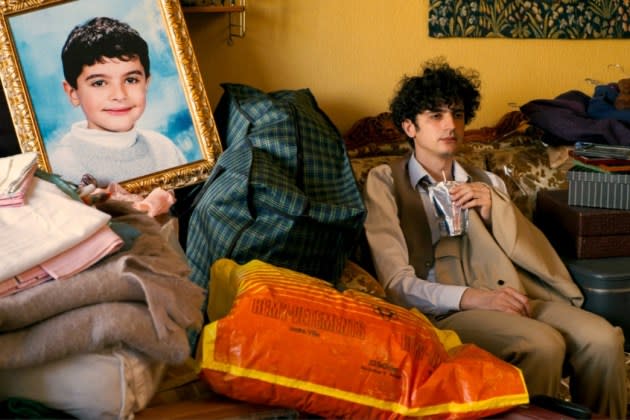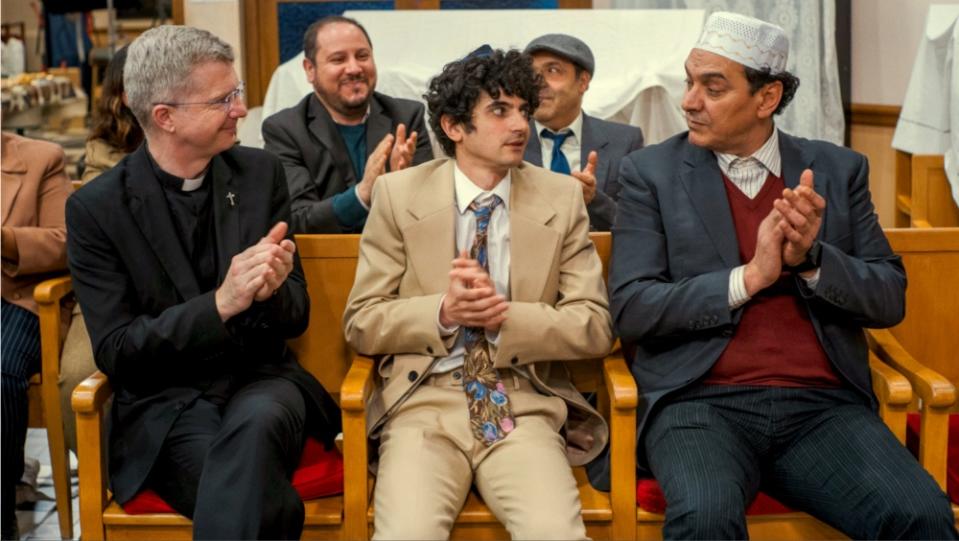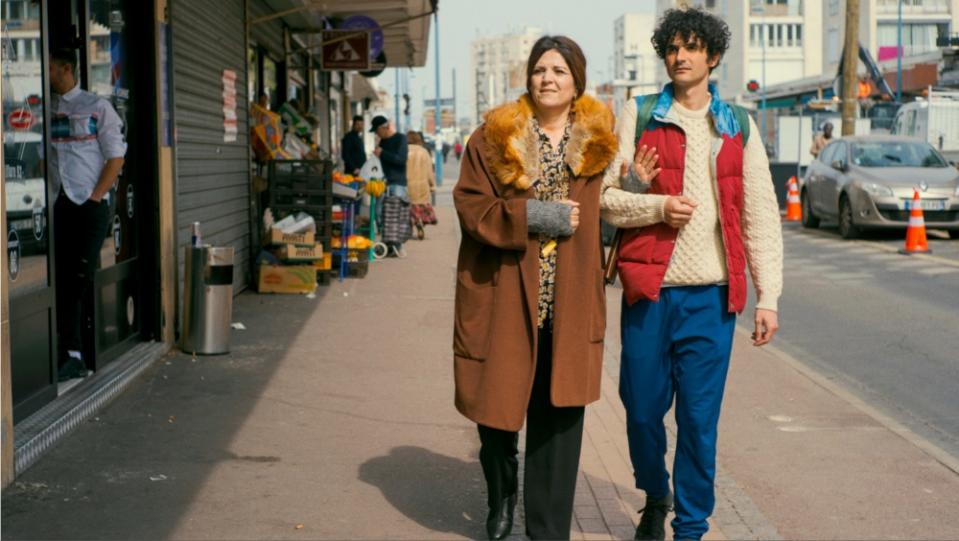‘Stillwater’ Writer Noé Debré Talks Feature Debut ‘A Nice Jewish Boy,’ Reveals New Projects With Tom McCarthy, Alexander Payne (EXCLUSIVE)

Noé Debré, the co-writer of “Dheepan” and “Stillwater” and creator of the European Parliament sendup series “Parlement,” marks his feature directorial debut with the bittersweet comedy “A Nice Jewish Boy.”
Produced by Moonshaker, sold by Charades and making its world market premiere at this year’s Unifrance Rendez-Vous in Paris, the freewheeling film follows a 27-year-old man-child Bellisha (Michael Zindel) and his ailing mother, Giselle (Agnès Jaoui), who together make up the last remaining Jews living in a working class neighborhood that all of their friends and family have long since fled.
More from Variety
At first that’s just as well for the easy-going Bellisha, but health concerns, prejudice and most of all an acute sense of alienation soon begin to creep in. Below, Variety catches up with Debré at this year’s Rendez-Vous.
How did this feature idea come about?
I saw a short film called “Masel Tov Cocktail,” about a Russian-Jewish teenager living in Germany. The character lived in this high-rise, housing projects neighborhood, and that image struck me. I thought, how crazy, cinema has really never depicted the stories of Jews from working-class neighborhoods in France. And so, whenever we uncover a new gap between reality and representation, there’s a film to be made.
The film’s French-language title translates as “The Last of the Jews,” which reflects the bittersweet tone. The film has a lot to say about loneliness.
It’s not just loneliness, it’s also the idea of being the last. In other words, it’s the anguish of disappearance, of saying to oneself, “Ah, well if I disappear, then everything will disappear, there won’t be any of us left.” And I think that, at least in Europe, if less so America, that anxiety is very much part of the Jewish psyche. There’s also something a little poignant in both the Jewish condition and the European project [that is the subject of “Parlement.”] You get the impression that both are threatened with extinction at any moment. I suppose both the film and series come from the need to treat those existential fears with comedy.
You strike a very particular comedic tone, following a naïf-like character falling in and out of low-stakes adventures.
I wanted the film to have a certain degree of finesse. I thought a lot about Charlie Chaplin, who would tackle very dark and serious subjects like poverty and fascism with insouciance and unflappability. Whatever hardships would [befall Chaplin’s Tramp], his dignity could never be touched. I wanted the same for [Bellisha]. It was important that he never lose his dignity. In fact, I designed the film around star Michael Zindel’s comic persona; he has the same energy as Chaplin or Peter Sellers in “Being There.” He’s such a singular presence.
I always knew that the film had to star Michael, but I only recently understood why. Cinema can never really denounce violence; by depicting violence you always end up gloryifyng it. Whereas Michael helps get around that; with his Chaplinesque demeanor, he can take as many hits as you want, because the violence has no hold.

You certainly flirt with social satire, particularly in instances when Bellisha becomes a figurehead as his neighborhood’s Last Jew Standing.
I love this way of looking at the world and I find it hard to do otherwise, so much so that I have to sometimes push against it to avoid being too caustic. I needed to keep the film grounded and earnest as well. I had to work on myself to keep it that way, because otherwise I could just as easily tip into full satire all too quickly. To that end, I took immense inspiration from [cartoonist and filmmaker] Riad Sattouf’s [graphic novel memoir] “The Arab of the Future,” which perfects this particular tone. Sattouf tells a big story through a small window, exploring tough themes with a kind of lightness and irreverence. The characters’ preoccupations aren’t at all commensurate with the events they’re going through, and that’s delightful, heartwarming.
The film wrestles with questions of belonging, as Bellisha and his family don’t always feel like they fit in to the their community, while all the same, never can imagine themselves anywhere else.
I’m very sensitive to this because I come from a family that, on my father’s side, has been in France for centuries. These communities were very patriotic, very French. And so I grew up within an idea of a common destiny between Jews and France. But it’s true that since the early 2000s, this unity has been put to the test, and I think the film confronts this question. Anyway, I wouldn’t know how to be anything but French. At this point, the die is cast. If I were to leave today to Canada or Australia, I’d still always be a Frenchman. So I hope the film, in form and image, really evokes that heritage. I find it touching when people compare Bellisha to Antoine Doinel. I like that the film has a New Wave feel.
What are you working on next?
Now, I’m prepping “Parlement” Season 4, while my Jean Dujardin-led “Zorro” series is currently shooting. [“Dheepan” and “Stillwater” co-writer] Thomas Bidegain and I have recently started working on a new project with Tom McCarthy, because we’ve always wanted to make another film together, while Thomas and I have also worked on script with Alexander Payne. I’m not sure if that [latter] film will be made, but the script is finished, and the collaboration went great.
Will you continue partnering with American filmmakers?
Sure. It’s nice to work with Americans – especially great directors. Plus, with Americans, nothing is impossible. You know, in France, when you make a film, you spend your time writing around your budget. You almost limit yourself, because you know certain scenes and ideas will probably get cut out anyway, so you might as well not write them. But Americans never think like that, and that’s not bad. It’s quite pleasant!

Best of Variety
Sign up for Variety’s Newsletter. For the latest news, follow us on Facebook, Twitter, and Instagram.

 Yahoo News
Yahoo News 
